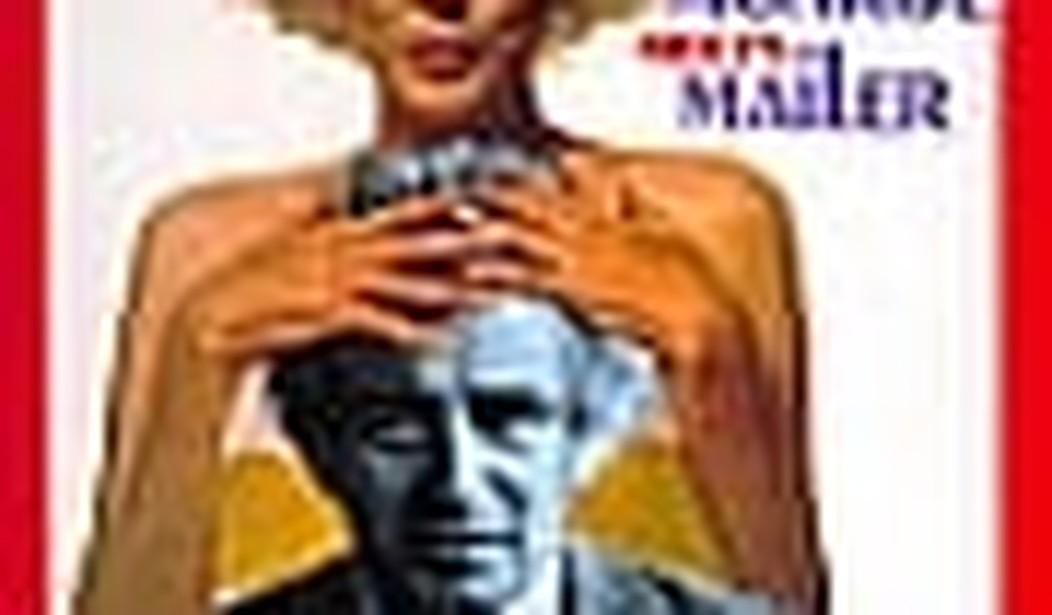Norman Mailer was the first significant American novelist to embrace fame to a degree that always threatened to overwhelm his legitimate literary achievements. Mark Twain, had he lived in our era might have given Mailer a run for his money in the Fame chase. Jacqueline Susann and many others thrived on notoriety but they belonged to the world of publicity and book sales. Mailer had real gifts and accomplishments. Unlike say, Philip Roth, who shuns the public life or Saul Bellow who spoke publicly in a judicious manner, Mailer couldn’t stay out of the public arena whether he had anything to say or not.
To be a novelist is to have a big ego and Mailer was certainly a careerist, who often said his rival was Tolstoy. He published for nearly 60 years. A few of his novels will continue to find readers but it is in nonfiction that he made his mark. He tried his hand at politics and filmmaking. He was the existential tap dancer and there was, quite simply, no one else like him.
His first book, The Naked and the Dead, about his war experiences in the Pacific theatre, made him famous at 25. In it, he tried to reflect soldier-speak, which then and now, was laced with profanity. It was 1947 when no reputable publisher would publish the word “fuck,” at least not dozens of times in a trade book. Mailer had his soldiers say “fug” a lot and it became part of the language for some years, at least until profanity became as common as toothpaste.
He wrote about Hollywood in The Deer Park, which turns on an Elia Kazan-like character and his trials with a Congressional committee. I recall a scene or two with a studio head who was something of a pederast. He was loosely based on Louis B. Mayer. A stand-in for Judy Garland was his prey.
It was Vietnam, however, that gave Mailer the voice that remains. Two of his best books, The Armies of the Night, nominally about a march on the Pentagon, and Miami and The Siege of Chicago, about the 1968 presidential nominating conventions were both set at a time when race was the subject that absorbed the country. Those books can now be seen as founding documents of what Tom Wolf called The New Journalism.
One scene stays in my memory all these years later. In the ruckus around the Pentagon demonstration, Mailer gets tossed in jail. I seem to recall that he shared a cell with the poet Robert Lowell. In any case, a black cellmate starts going on about white oppression while Mailer is trying to think about a war he opposed. He finds himself tired of black people and their problems. Then it comes over him: if he, Norman Mailer, is tired of it, what must the rest of the country be thinking? It’s a classic Mailer moment, supposedly self-revealing, but also self-aggrandizing.
New Yorkers of a certain age, no matter where they might be, remember his lunatic run for the mayoralty in the 1960s. Jimmy Breslin was on the ticket. The main plank of their Left-Conservative party platform was Mailer’s plan to make New York City the 51st state. He also wanted to ban traffic from Manhattan, which wasn’t such a bad idea, then or now.
A party hack got the Democratic nomination and John Lindsey, then a Republican, won the race. It was vintage Mailer: irritating and inspiring, all at once. He made a circus out of the whole thing. He might not have made much of a Mayor, but for a while at least he made the city come alive.
Later, he made three films – writing, directing, starring, financing, and as I recall, editing, them all. The first two were semi coherent. Only Maidstone was worth watching and it was more famous for Mailer’s epic battles with his star than for the movie itself. Mailer and Rip Torn got into a fistfight. Mailer tried to bite off Rip’s ear. Shades of Mike Tyson! These were grown men. It all wound up in the movie.
But Mailer had no real gift for the movies. He went back to his prose and produced The Executioner’s Song, his great account of the murderer Gary Gilmore and his execution by firing squad – firing squad! It remains a document of the country, written in spare direct prose, it catches the sounds and feelings of the American West. I remember it as compulsively readable. It led to his revisiting fiction and a series of huge door-stopping novels that I couldn’t finish reading. He took on Hitler as a boy, Jesus, ancient Egypt and in Harlot’s Ghost, the best of his late period’s work, the CIA and James Angleton. In that book, though, I was always wondering what was biography and what was imagination. With the younger Mailer, one would have been swept up and carried along with no concern for such critical niceties.
A long lifetime of pubic pugnacity and seemingly endless opinions, is bound to lead to public errors. For Mailer, the low point was surely the Jack Henry Abbott affair. Abbott was a convicted murder with a literary bent. He wrote a series of letters to Mailer, which was published as In the Belly of the Beast. Mailer worked to get Abbott out of prison. After about six weeks of freedom, in New York, this thug stabbed and killed a waiter and aspiring actor.
Mailer also engaged in a New York Town Hall debate with the feminist Germaine Greer. He had published an essay called The Prisoner of Sex with which women took issue. One of Mailer’s views was that sex using birth control was for sissies, or some such. He also had Neanderthal opinions about abortion. If the cause of the pregnancy had been good, so his theory went, a woman would regret an abortion. If the sex had been indifferent, she wouldn’t much care. As I write these words, in 2007, I can’t help wondering if I’ve remembered it wrong. Could the author of The Armies of the Night and The Executioner’s Song have been that ridiculous in public? He might even have believed that salami, but it’s certain that he loved the battle and the publicity.
Women vexed Mailer. He stabbed one of his wives and he might well have gone to prison for it. He had many wives and children, which were costly. To pay his debts, he sold his papers to the University of Texas, for a few million dollars. It took more than one truck to carry all his manuscripts and correspondence and early drafts from New York to Austin.
In all this public posturing, it’s easy to forget what a fine craftsman he was. His prose was supple and yet direct and he had rich powers of description and metaphor. In each new book or essay or pronouncement, it didn’t matter if a reader disagreed because you knew that soon there would be another, perhaps conflicting view. He was engaged in a shifting public argument that lasted for decades. It was all, as he put it in the title of one of his early books, Advertisements for Myself.
I last saw him during the run-up to the war. He was going around the country speaking in the houses of rich people. He was espousing what was then called “containment” though I think he knew his position wouldn’t hold. His knees were already shot and to get around he used two crutches of the sort that clipped onto his forearms. It looked painful. Mailer had been famous since the 1940s. As he well knew, to be a novelist one must be able to look at people watch them unseen and then slip away. Mailer was looked at, constantly. It surely hurt his fiction voice but didn’t do any damage to his nonfiction side.
Writers now often feel more like politicians or businessmen than artists. There’s a seeming endless supply of them, wrangling for publicity, angling for the opportunity to spill their guts in public. Mailer’s fiction may have been uneven, his opinions frequently bizarre, but for all that, Norman Mailer was a singular voice and he was playing for keeps.









Join the conversation as a VIP Member